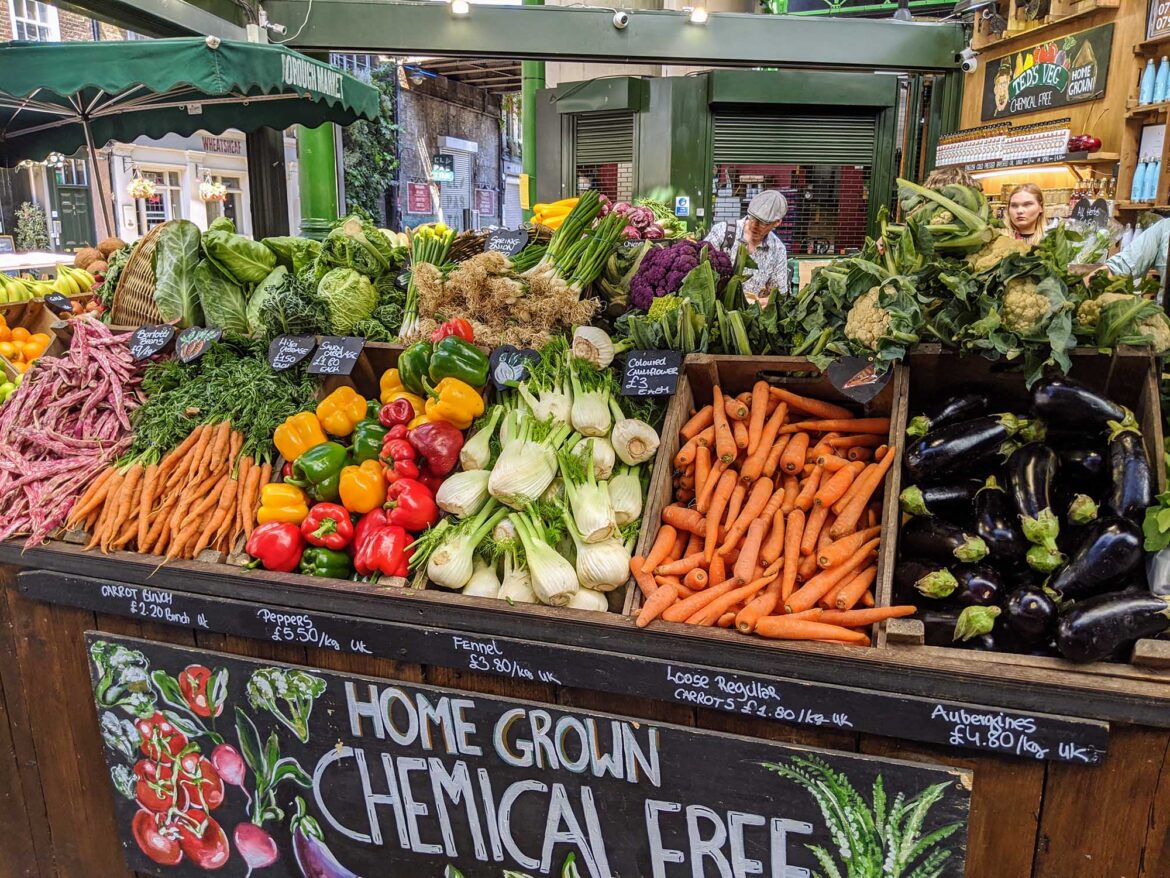I get it. I was a skeptic. A big, fat, cynical skeptic. I would scoff at the prices of organic food and mutter about my perfectly adequate liver and kidney. What a racket, I thought. And then I got cancer.
Now, I don’t blame pesticides for my cancer (even though pesticides are cancer causing).
What cancer did was give me a reason to dive more deeply into the whole debate around the value of organic food versus conventional food grown with toxic pesticides. That research convinced me of the benefits of organic eating even for those with perfectly healthy liver and kidneys — and the critical importance of doing so for those with immune- and detox-compromising conditions like cancer or chemo.
The most important reasons to eat organic are:
Pesticides utilize — and can exhaust — enzyme pathways needed to detoxify chemo, environmental toxins, and other drugs.
If you have cancer, you probably have enough toxins in your body. Check out this article on ways to reduce your overall toxic load.
Food grown without chemical pesticides has been shown to contain more cancer-fighting phytonutrients
Organic food has been shown to contain between 19 and 69% larger variety antioxidant compounds.
Foods grown organically expose you to a larger, more diverse, microbiome
The fact that food grown organically has experienced pests means you’re exposed to a larger biome when you eat it. One 2019 study in Frontiers in Microbiology showed that “organically managed apples harbor a significantly more diverse… microbiota, compared to conventional ones.”
Too many approved pesticides have been shown to cause cancer
Three pesticides – arsenic, ethylene oxide and lindane – are rated as Group 1 carcinogens, or conclusive causes of cancer, by the International Agency for Research on Cancer. Glyphosate, AKA Roundup, is the most widely used pesticide today and a known endocrine disruptor linked to cancer deaths. It is classified by the World Health Organization as “probably carcinogenic to humans.”
Further, a study published in JAMA in 2018 of over 68,000 people showed that “a higher frequency of organic food consumption was associated with a reduced risk of cancer.”
Do what you can with what you have
Organic produce is more expensive and may not be realistic for some. In my case, the costs are easily offset by:
- Savings from alcohol. I used to drink a bottle of wine a night. Now I have maybe half a glass a month.
- Savings from eating out. Lets face it, a whole foods, plant-based, ketogenic diet isn’t accommodated by most restaurants.
- Fasting one to three days a week. Heck, there are some weeks I don’t eat at all. I make up the calories on feed days but there’s still savings there.
Even with these advantages, organic produce isn’t always realistic. Don’t let the lack of an organic alternative or the fact that it’s price prohibitive keep you from eating healthy, whole foods. The pesticides on a strawberry won’t be the difference between life and death and the healing benefits of the berry outweigh the risk of pesticides. The goal is to reduce the overall toxic burden for your body’s detoxification organs and immune system so that they can focus less on processing pesticides and more on healing cancer.
I generally prioritize using the Dirty Dozen/ Clean 15 list put out annually by the Environmental Working Group using data from the US Department of Agriculture. These lists rank supermarket produce with the most pesticide residue, known as The Dirty Dozen, and the least, known as the Clean Fifteen. The best and worst offenders don’t vary much from year to year.
The 2019 Dirty Dozen
US supermarket produce with the most pesticide residue.
- Strawberries
- Spinach
- Kale
- Nectarines
- Apples
- Grapes
- Peaches
- Cherries
- Pears
- Tomatoes
- Celery
- Potatoes
Note that bell peppers are often on this list.
The 2019 Clean 15
US supermarket produce with the least pesticide residue.
- Avocados
- Sweet corn
- Pineapple
- Onions
- Papaya
- Sweet peas (frozen)
- Eggplants
- Asparagus
- Cauliflower
- Cantaloupes
- Broccoli
- Mushrooms
- Cabbage
- Honeydew melon
- Kiwifruit
Personally, I substitute conventional produce from the clean 15 list, when I need to make compromises. I generally insist on organic versions of items on the dirty dozen list.
It’s important to note that organic food in the US is not necessarily pesticide-free. Organic farms may use natural products or man-made products to keep pests away. Nevertheless, while the standards are not as strict as in Europe, organic produce in the US is still less toxic than conventional.


